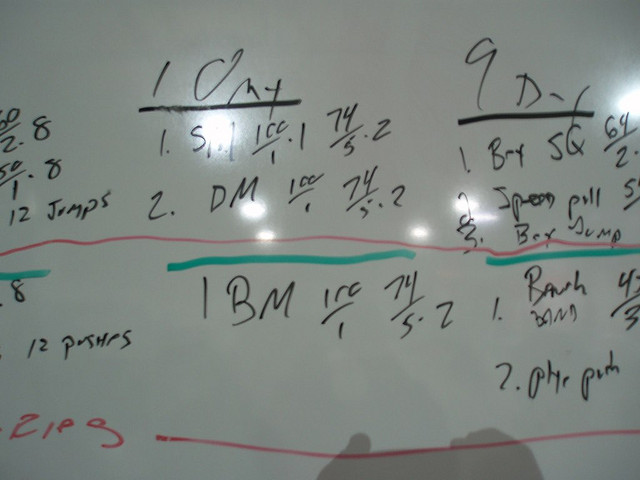
Jason Ferruggia and I were talking yesterday, and interestingly enough, we had both just received similar emails regarding our products. The emails basically said:
"I am interested in buying (insert product name) and want to see if it is worth the money. How many pages is it?"
Needless to say, Jay and I thought this was pretty funny (in a sad sort of way). That's how these people were going to determine whether a product was “worth the money?” By page count? And I'm guessing that what they really meant was the more pages the product had, the more it was worth. I guess if we had doubled our font size and doubled the line spacing, the product would be worth more, right? But if we condensed it, it would be worth less? Crazy.
For example, the Afterburn program is a 16-week rapid fat loss program. How much is that program worth if the manual is 200 pages long? What if the same information was available in 100 pages? Or on a single page? Isn't all of that irrelevant as long as the information is the same? You are paying for the information. In fact, at our gym, a 16-week program would cost about $1200. And it would be designed and recorded on four pages.
Again, you pay for the program—the information—not how many pages it is spread out over. But apparently that's not how some people think.
I'll confess—emails like these (and I suppose it's more the attitude behind them) absolutely fascinate me. I've talked about this before using another example of fat loss training. If I can get a client to lose 20 lbs in five weeks training twice a week (for ten total sessions), and you get the same results training three times a week for ten weeks (for 30 total sessions), I get the same results in LESS time.
If I deliver the same result in half the time and with a third of the sessions, my program is worth MORE. Ten sessions are worth MORE in this case than 30 sessions. We want the result in as little time as possible. It's not worth more if we take 30 sessions to get the result that could be achieved in ten sessions, right?
Time is money
Jay and I feel the same about products that we’ve both invested in, in the past. We want the result in as little time as possible too.
Time is not just money. Time is the single most valuable and finite resource we have. That's the one thing I want to save beyond anything else. If you exchange the word "time" for "life," you'll realize my thoughts. I don't like wasting "life" or spending my "life" on pointless tasks. For example, I rarely have time to read a 500-page manual or watch a seven-DVD set.
However, if you can take that same information and deliver it in five pages and a 15-minute DVD, that's isn’t worth less to me. In fact, I'll pay more for that. I actually have the reverse attitude of people like those who emailed Jay and I. I want all of the information in as few pages as possible.
It's the same reason that most business executives subscribe to "book summaries," where they get the main points of new business books condensed into a few pages. These “summaries” have all of the information, and the executives don’t have to invest their time reading the entire book.
It's the same reason TiVo has become extremely popular. Condense the information.
It's the same reason a cross country flight costs more than a cross country bus ride. The result in less time.
If you honestly think a manual or a book with more pages or a DVD with a longer run time automatically means more value, then you really need to rethink your approach to education.
If page count is a bigger buying decision for you than content, you might just be beyond hope! (Hint—page count and content quality are entirely unrelated.) I'd go as far as to say that in this case, reverse is probably closer to the truth. I'd rather have a 15-page product crammed full of information than the same information spread out over 1500 pages.
Focus on the quality of the information, not the quantity.








